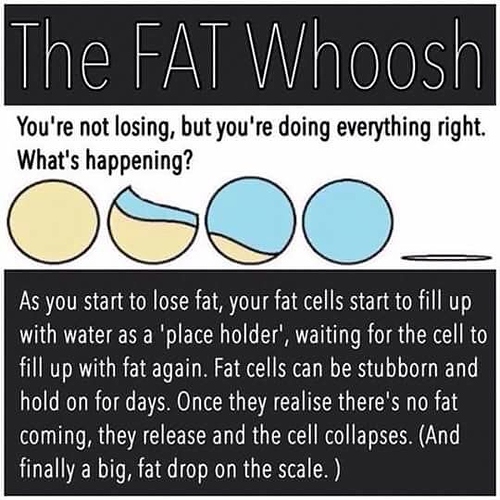Hi,
Is it more difficult to lose weight (and maintain fat loss) if you have lots of small fat cells as opposed to a smaller amount of large fat cells, even if the “total weight” of the fat is the same in both cases?
Would\should there be a different approach to losing weight in either case?
Here’s what I understand:
Let’s say a young 30 yr old has 20% bodyfat. Let’s just assume he weighs 75 kg. So that’s 15kg of fat. Let’s assume this is made up of a million fat cells (I’m just making up a number). As he gets older, and eats a lot of carbs, he grows fat. I am assuming he now has 2 million fat cells, and each has expanded to double the size (again, I’m making up the number for the example). So that would mean he now has 60 Kg of fat, and he weighs 120KG.
So he goes low carb, his insulin goes down, and the fat cells “release” the fat for energy. So the fat cells are getting smaller, perhaps back to normal, but the amount of cells doesn’t change. So he can lose 30 kg this way (simplistic, but this is a thought experiment).
But he is still left with a million “extra” fat cells and 15kg more of fat. So he weighs 90KG.
Do these disappear? Or is that stubborn fat that won’t go away? And if it does go away at some time, through what mechanism would this be, and is LCHF implicated?
And let’s say that he plods on and eats very little. So the cells get even smaller then at the outset, let’s say half size than he started. So now he has 2 million cells, each “half size” so he has 15kg bodyfat, same as when he started, but double the amount of cells, that are half the size. Aren’t the cells just “ravenous” waiting to “pounce” on any extra source of energy floating around, as opposed to a “satiated” cell? Would this explain why maintenance is difficult?
Am i getting this right?
I’d be grateful for some relatively simple explanations for a layman,
Thanks
Elli

